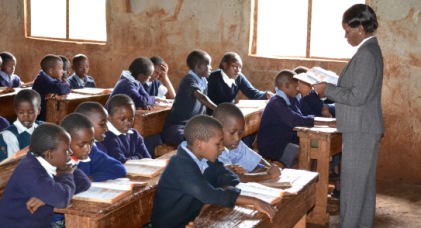
A FRESH Start to Improving the Quality and Equity of Education
“Education for All” means ensuring that all children have access to basic education of good quality. This implies creating an environment in schools and in basic education programmes in which children are both able and enabled to learn. Such an environment must be friendly and welcoming to children, healthy for children, effective with children, and protective of children. The development of such child-friendly learning environments is an essential part of the overall efforts by countries around the world to increase access to, and improve the quality, of their schools.
Poor health and malnutrition are important underlying factors for low school enrollment, absenteeism, poor classroom performance, and early school dropout, as reflected in the World Declaration on Education for All to achieve good health, hygiene and nutrition at school age are therefore essential to the promotion of basic education for all children.
Good health and nutrition are not only essential inputs but also important outcomes of basic education of good quality. First, children must be healthy and well-nourished in order to fully participate in education and gain its maximum benefits. Early childhood care programmes and primary schools which improve children’s health and nutrition can enhance the learning and educational outcomes of school children. Second, education of good quality can lead to better health and nutrition outcomes for children, especially girls, and thus for the next generation of children as well. In addition, a healthy, safe and secure school environment can help protect children from health hazards, abuse and exclusion.
Positive experiences by
WHO,
UNICEF,
UNESCO and the
World Bank suggest that there is a core group of cost effective activities which could form the basis for intensified and joint action to make schools healthy for children and so contribute to the development of child-friendly schools. These agencies are now developing a partnership for Focusing Resources on Effective School Health. This sees further colloboration from other key partners:
WFP, Education International,
Education Development Centre and the
Partnership for Child Development. This FRESH Start approach was launched at the
World Education Forum in Senegal, April 2000.
Background to FRESH

